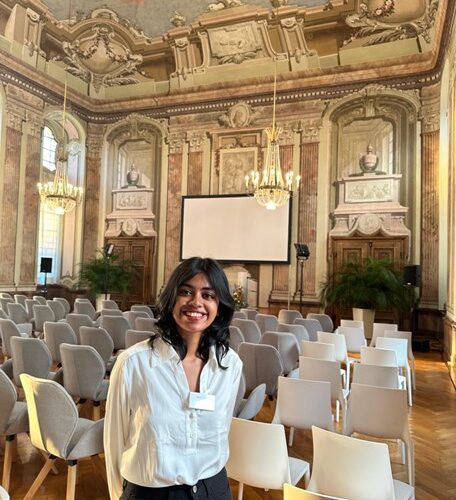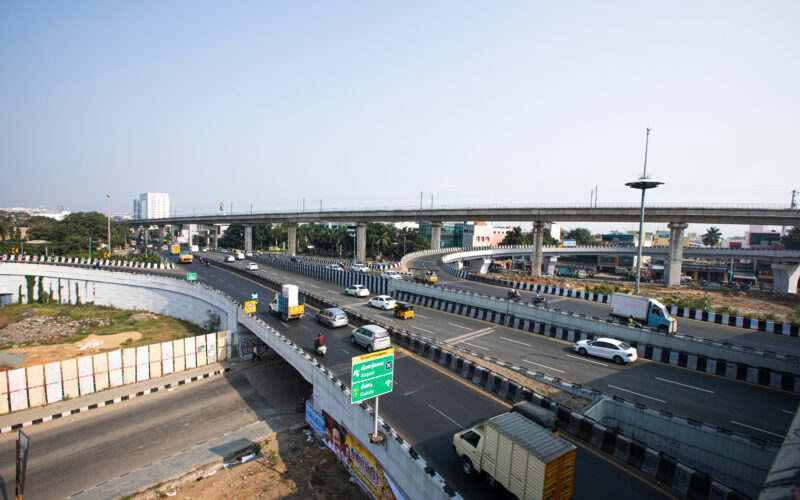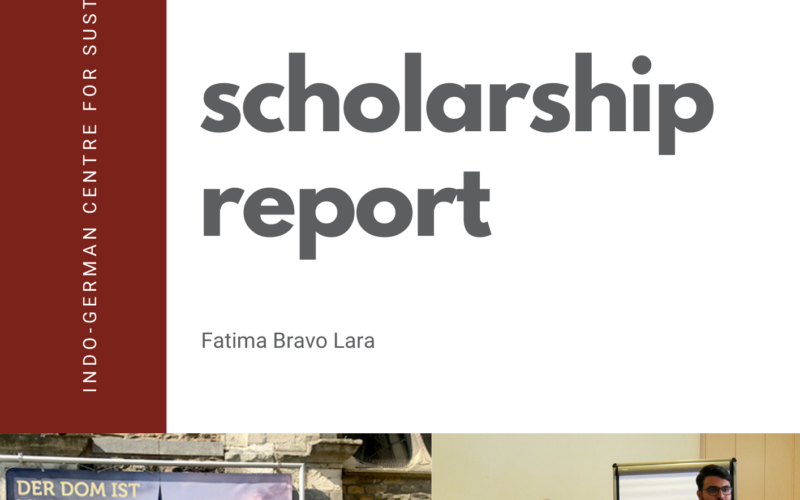IGCS offers scholarships to outstanding students and researchers from Indian and German academic institutions, who have excellent academic records, strong English and intercultural communication skills. Our students submit a specific research or work plan aligned with IGCS’ research themes, which they continue to develop through experience working abroad in collaboration with their advisor at the host institution.
Today, we introduce you to one of our scholar, Geethanjali R V, a tandem masters student from Indian Institute of Technology, Madras, India who worked under Prof. Martina Padmanabhan from the Universität Passau, Germany. She shares:
“I am Geethanjali, a Development Studies student from IIT Madras. My research area is the political ecological discourses surrounding the #Thamirabharani river in India. I was roped into the project as a part of the River Cities Network, through which I met Prof. Martina Padmanabhan. When I was invited to conduct my research in Passau with several other scholars working in the area, I was worried about the financial implications a two-month stay in Germany would have. My mentor here in India, Dr. Christoph Woiwode then introduced me to the IGCS scholarship. After an elaborate application process, I was informed that I had been offered the IGCS grant funded by #DAAD!
As I arrived in Passau, I was warmly welcomed by my professor and my other colleagues. They made sure I felt comfortable and also ensured that I could learn everything they had to offer in the time I was there. The research environment there was really top-class and I learnt a great deal about conducting qualitative research, the different tools I could employ and the structuring of a good research paper, which will be greatly useful as I progress in my career.
I am also extremely thankful to the IGCS team for being helpful in the whole process, and made sure to go the extra mile to even help me out with my visa documents, etc. The representatives were always prompt in answering to my never-ending questions and I never once felt like I was alone in this whole process.
Beyond the academic aspects, my stay in #Germany offered a rich cultural experience. I have always wanted to work in an inter-disciplinary environment, and this exchange provided me with exactly what I wanted. Interacting with people from diverse backgrounds and exploring the country’s vibrant history and traditions broadened my perspectives and enriched my personal growth and I will take these experiences with me wherever I go, as I move forward with my career.
This experience has been truly transformative, and I am excited to apply the knowledge and skills I’ve gained to my future endeavours.”



